Please use this identifier to cite or link to this item:
https://repositorio.ipea.gov.br/handle/11058/15391Files in This Item:
| File | Description | Size | Format | |
|---|---|---|---|---|
| en_IPCOnePager111.pdf | 58.48 kB | Adobe PDF | 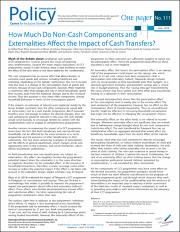 View/Open | |
| es_IPCOnePager111.pdf | 53.82 kB | Adobe PDF | 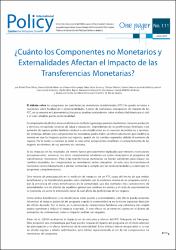 View/Open | |
| pt-br_IPCOnePager111.pdf | 78.36 kB | Adobe PDF | 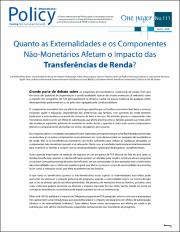 View/Open | |
| tr_IPCOnePager111.pdf | 207.93 kB | Adobe PDF | 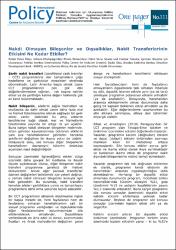 View/Open | |
| zh-hans_IPCOnePager111.pdf | 410 kB | Adobe PDF | 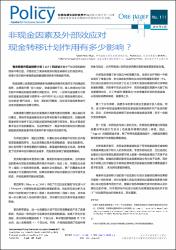 View/Open |
| Title: | How Much Do Non-Cash Components and Externalities Affect the Impact of Cash Transfers? |
| Other Titles: | ¿Cuánto los Componentes no Monetarios y Externalidades Afectan el Impacto de las Transferencias Monetarias? Quanto as Externalidades e os Componentes Não-Monetários Afetam o Impacto das Transferências de Renda? How Much Do Non-Cash Components and Externalities Affect the Impact of Cash Transfers? How Much Do Non-Cash Components and Externalities Affect the Impact of Cash Transfers? |
| Authors: | Ribas, Rafael Perez Soares, Fabio Veras Teixeira, Clarissa Gondim Silva, Elydia Hirata, Guilherme Issamu |
| Abstract: | Much of the debate about conditional cash transfer (CCT) programmes revolves around the issues of targeting and conditionalities. Despite the many impact evaluations of CCT programmes, mostly in Latin America, there is little evidence on either the effect of the cash alone or the value added by the conditionality. The cash component has an income effect that allows families to consume more goods and services, including healthcare and schooling. Depending on the families’ preferences, this rise in income may also lead to a change in the consumption share of goods and services. Because of non-cash components, however, there might be a substitution effect that changes the way in which households spend their income, aside from the expected changes due to the increased income. Thus the question is how these other components change household behaviour in terms of the consumption pattern. (…) Grande parte do debate sobre os programas de transferência condicional de renda (TCR) gira em torno das questões de segmentação e condicionalidade. Apesar das muitas avaliações já realizadas sobre o impacto dos programas de TCR, principalmente na América Latina, há pouca evidência de qualquer efeito desempenhado pela renda em si, ou pelo valor agregado pela condicionalidade. (...) |
| metadata.dc.rights.holder: | International Policy Centre for Inclusive Growth United Nations Development Programme |
| metadata.dc.rights.license: | O texto e dados desta publicação podem ser reproduzidos desde que as fontes sejam citadas. Reproduções com fins comerciais são proibidas. |
| metadata.dc.type: | One Pager |
| Appears in Collections: | Publicações do IPC-IG |
Items in DSpace are protected by copyright, with all rights reserved, unless otherwise indicated.

